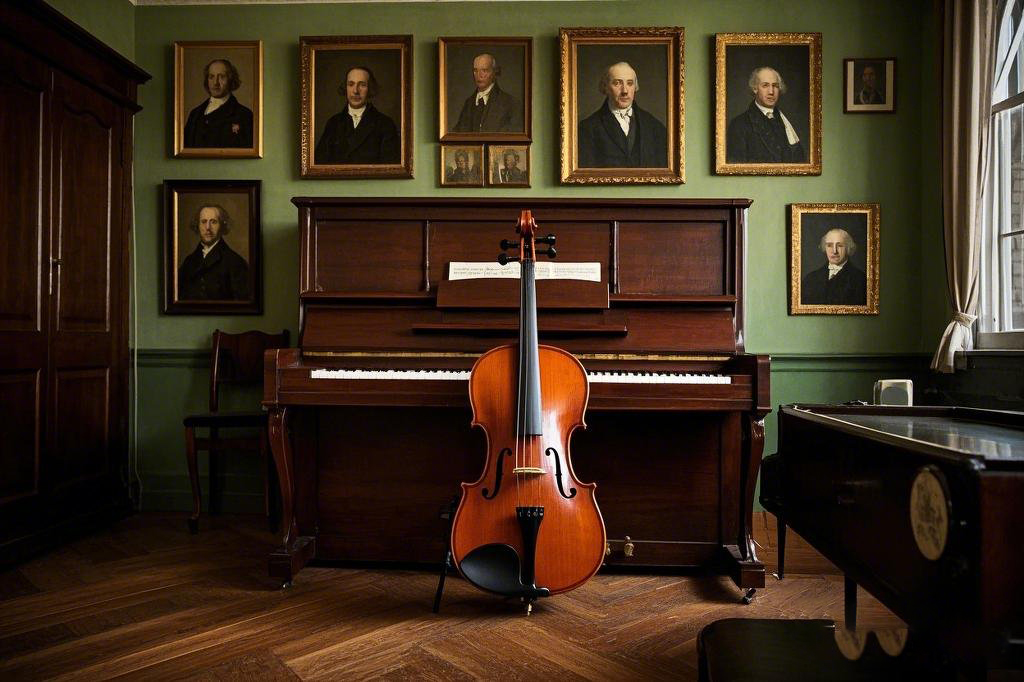Multigenerational Learning Grandparents Joining Virtual Violin Sessions
Shang Kun 2025-07-26 137
Digitization is sweeping through every corner of our lives, redefining how we connect with one another, especially across generations. In recent years, there's been a heartwarming trend where grandparents are joining virtual violin sessions, a phenomenon affectionately known as "Multigenerational Learning". This is not merely a passing fad; it's a beautiful reflection of how technology is bridging the gap between generations. It might sound unconventional, but think about this: could our elderly loved ones, who might have otherwise spent quiet afternoons alone, now be participating in vibrant, interactive virtual violin lessons This is where multigenerational learning comes in—a concept that is both touching and transformative. If you're curious about how grandparents can engage in virtual violin sessions, this article will explore the benefits, the fascinating stories, and the practical steps to get started.
First, it's important to recognize why someone might be skeptical about grandparents joining virtual violin sessions. After all, isn't it challenging for older adults to adapt to new technologies Beyond the technical barriers, there's the cultural shift involved in stepping into a virtual classroom. Moreover, not everyone is aware of the multiple advantages this kind of interaction can bring. These are valid concerns, but they also hint at an opportunity we shouldn't overlook. With the right approach and resources, grandparents can not only learn to play the violin but also create lasting memories and strengthen family ties.
The idea of grandparents learning the violin might seem surprising at first, but it's far from unique. Over the past decade, the rise of online music lessons has democratized access to music education, making it possible for people of all ages to learn at their own pace and from the comfort of their homes. This convenience is particularly appealing to older adults who might find it challenging to attend in-person classes. Moreover, virtual lessons eliminate geographical constraints, allowing individuals to learn from renowned instructors regardless of where they live.
Now, let's peel back the curtain and explore some of the most heartwarming stories. Imagine a grandmother, often seen as a familiar figure knitting by the window, suddenly discovering the joy of playing the violin. This shift is not only about learning a new skill; it's about embracing life with a fresh perspective. It's also about setting an example for the younger generations, demonstrating that learning knows no age. These stories remind us that age is not a barrier to growth and creativity.

To embark on this multigenerational learning journey, there are a few key steps to consider. First, selecting the right platform is crucial. Not all online music schools are created equal. It's important to choose a platform that offers structured lessons, supportive communities, and user-friendly interfaces. Next, finding the right teacher is another essential step. A good teacher will not only impart musical knowledge but also provide encouragement and guidance tailored to the unique needs of older learners.
Speaking of teachers, there's one standout figure in the world of online violin lessons: Chinese violin teacher Shang Kun. Renowned for his expertise and approachable teaching style, Shang Kun offers one-on-one lessons, whether online or offline. His classes are not only about mastering the violin; they're about fostering a love for music that transcends generations. Why is this important Because it's not just about the instrument; it's about the bonds we build and the joy we share.
Now, it's time to address the elephant in the room: will it be easy for grandparents to adapt to this new learning environment The answer is a resounding yes—if approached with patience and the right resources. Technology is only a tool, and it's designed to make our lives easier, not the other way around. With the right support and guidance, grandparents can navigate virtual violin sessions with ease. Moreover, the sense of accomplishment and the joy of learning something new often outweigh the initial challenges.
It's intriguing to think about how multigenerational learning can redefine our understanding of family dynamics. No longer are grandparents merely passive observers of their grandchildren's activities; they can actively engage and participate, creating shared experiences that will last a lifetime. This shift is not just about learning an instrument. It's about the new conversations, the laughter, the shared moments of triumph and the deepening of family bonds that come with it.
Action is key. If you're considering enrolling your elderly loved ones in virtual violin sessions, don't wait. The sooner they take that first step, the sooner they'll start reaping the benefits—a fresh sense of purpose, new found joy, and a renewed connection with their family.
So, the question now is, are you ready to embark on this journey of multigenerational learning with your grandparents Are you ready to witness them discover the beauty of playing the violin and, in the process, create memories that will be treasured for years to come If so, take the first step today. Remember, it's never too late to learn—a lesson that applies to us all.
